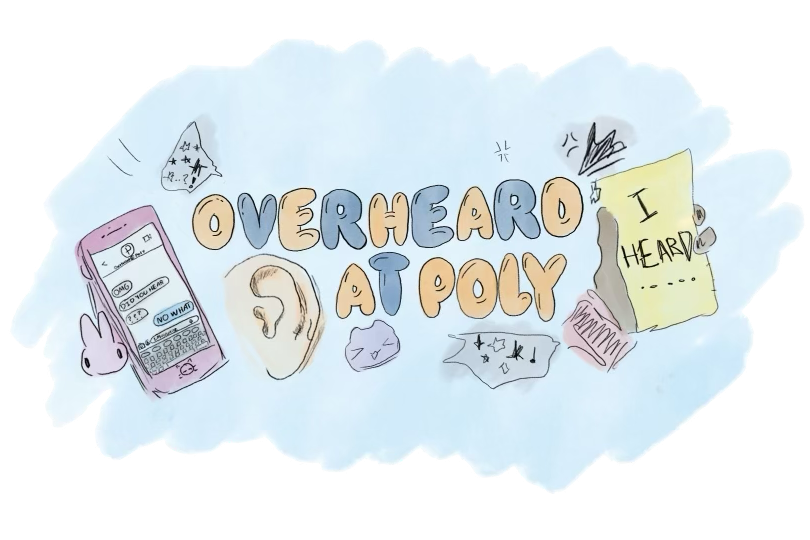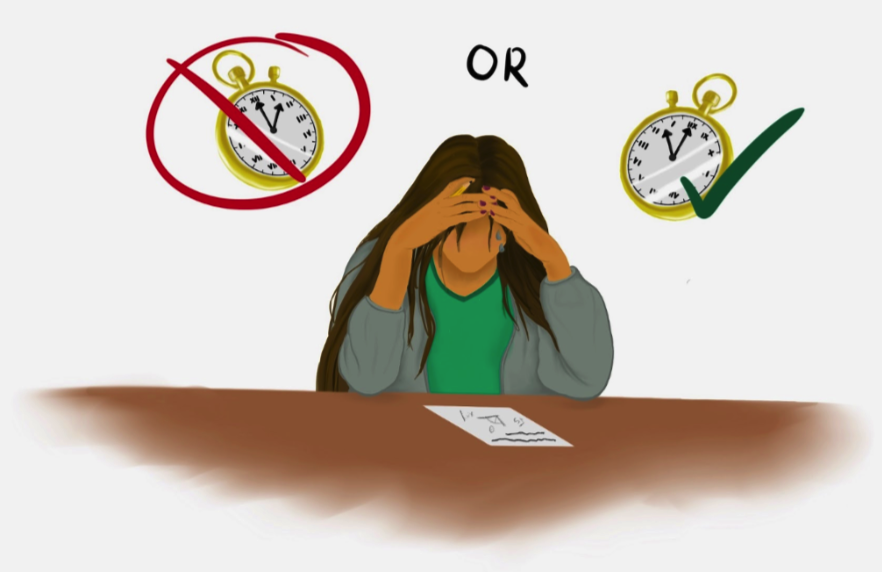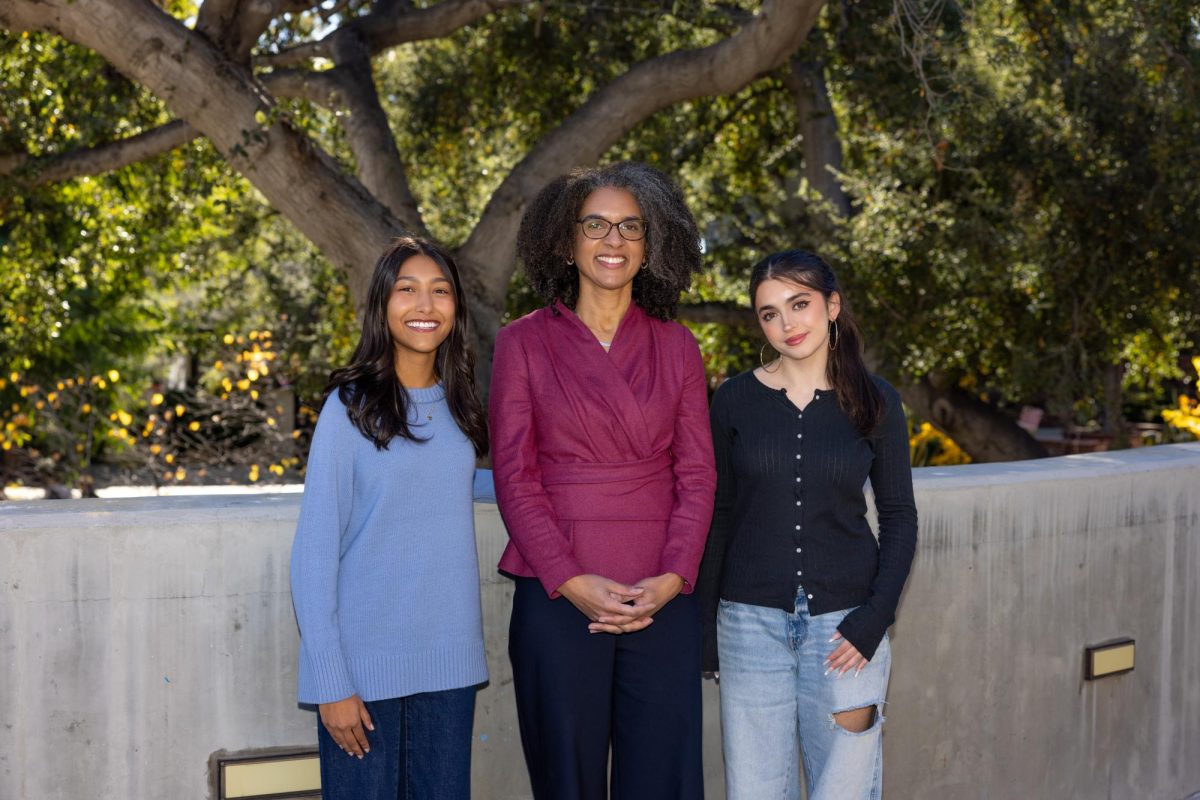As we approach the start of President-elect Donald Trump’s second term, the Poly community has expressed a range of reactions: some grieved, some celebrated and some simply shrugged off the results. Here are a few ways that Trump’s presidency could impact our community — our classrooms, our health and our ideals.
Education
Trump’s proposed changes to the governance of education raise significant questions about the direction of learning in America. Forbes, National Public Radio (NPR) and MSNBC, among other sources, report that Trump has vowed to abolish the federal Department of Education and instead relegate all educational responsibility and decisions to individual states. Even as an independent school, Poly is shaped by federal policies.
Upper School Director José Melgoza said, “In California, even though we’re not part of the state public education system, we have to be mindful of what their policies are. In a sense, that’s what the Department of Education does for the nation as a whole.”
“They set the tone of what the expectations are in terms of not just a base level of education, but what the best practices are for schools to follow, so we want to make sure we’re always in accordance with whatever major initiatives are being pursued,” Melgoza explained.
Alongside the proposed overhaul of the Department of Education, Trump has introduced policies targeting federal financial aid programs. According to Brookings Institute, around 45 million Americans rely on federal student loans, and changes to these programs could affect college enrollment trends.
Director of College Counseling Mark Rasic, reflecting on these potential disruptions to financial aid, shared, “As it stands, the Department of Education has had challenges administering that program [Free Application for Financial Student Aid (FAFSA)], and if it’s downsized, it could mean they have fewer human resources to administer things.”
The potential scaling back of financial aid is just one part of the broader educational shifts proposed under Trump’s administration. Trump’s 2024 campaign has garnered attention for its harsh stance against Diversity, Equity and Inclusion (DEI) initiatives. Trump has argued that DEI programs promote divisiveness, undermine meritocracy and result in reverse discrimination in that candidates from historically marginalized groups are favored over other qualified individuals. He advocates for a society in which an individual’s value is based on their abilities and achievements rather than their demographic characteristics, without acknowledging the resource disparities that minorities face.
Trump even plans to tie financial aid access — through programs like FAFSA — to compliance with his policies that favor “patriotic” curricula over DEI-based ones. Withholding funding will further marginalize students from underrepresented backgrounds, as without adequate financial support, many of these students are less likely to obtain a quality education, hindering their career prospects and exacerbating racial and class disparities.
Trump’s campaign also seeks to limit the rights of transgender students in schools and federal programs by threatening to withhold federal funding from states that allow accommodations for gender identity, such as transgender bathrooms and locker rooms.
Policies emphasizing “patriotic education” suggest a narrowing of acceptable narratives in classrooms, with potential implications for how topics like race, gender and history are addressed. According to Trump, he has no plans to “give one penny” to any school “pushing critical race theory, transgender insanity and other inappropriate racial, sexual or political content on our children.”
“I can’t imagine having topics off-limits that aren’t inappropriate,” said English teacher Laura Marion. “I’ve always wanted to teach students to stand up for what they believe and to be honest. If I don’t have that ability to model that, I don’t know how effective I am as a teacher.”
History Department Chair Kristen Osborne-Bartucca echoed these concerns: “By trying to dictate a particular truth, you’re also dictating a particular ideological agenda. All of that is done in service of crafting a specific narrative.”
Trump’s proposals represent just one facet of a broader effort to control educational content. The rise in book bans, which aim to restrict access to certain ideas and stories, further illustrates the threat to intellectual freedom in schools and society. Upper School Librarian Nora Murphy shared, “Book banning silences entire communities, entire identity groups, entire experiences. When we publish and distribute and read books, memoirs, poetry and stories written by different people, we begin to understand people in ways we couldn’t otherwise. The consequences are a citizenry with less empathy.”
At Poly, where fostering critical thinking is a core value, the idea of limiting access to literature is antithetical to the purpose of education. Authors we read here, such as Khaled Hosseini, James Baldwin and Margaret Atwood — frequent targets of bans — offer windows into experiences often excluded from traditional curricula. History has shown us that censoring ideas does not erase them; instead, it creates a generation less prepared to confront difficult truths.
Women’s Rights
A week before the election, Trump ascended the stage at a rally in Green Bay, Wisconsin. As he addressed his supporters, he made a stern promise: to protect American women “whether the women like it or not.” His remark quickly drew criticism from women’s rights activists. The phrase “whether the women like it or not” paints a painfully accurate picture of Trump’s views on women, embodied in not only his personal history but his proposed policies.
As polls projected an increasingly narrow presidential race, Michelle Obama urged women, “Please, please, do not hand our fates over to the likes of Trump — who knows nothing about us, who has shown deep contempt for us.” Yet, 44% of American women cast their ballots for Trump, a man who has been accused of sexual misconduct nearly two dozen times. Now, we must grapple with the ramifications.
Trump has bragged about his role in overturning Roe v. Wade, the Supreme Court case that calcified the right to abortion until the fetus becomes viable. Women across the country now speculate about what abortion rights will look like under a second Trump term. “There is always the possibility of a national ban,” says Brittany Fonteno, president of the National Abortion Federation (NAF). “[Vice President-elect] JD Vance has been very forthcoming about it, and he uses different language; he refers to it as a ‘national standard.’ But a ban is a ban. You can dress it up in flowery and different language, but that is what it is, and it will keep people from getting the care they need.”
Trump has also expressed an intent to repeal the Affordable Care Act (ACA), a move he tried to execute during his first term. Without the ACA, insurers could once again deny coverage for oral contraceptives and pre-existing conditions, which disproportionately affects women, as pregnancy, C-sections and even surviving domestic abuse are often categorized under this label. The absence of ACA protections would subject women to significantly higher premiums, and many could face insurmountable out-of-pocket costs for essential services such as maternity care.
The concerns don’t end at healthcare, however. The Institute for Strategic Dialogue, a nonpartisan organization tracking online disinformation and propaganda, released a report on Nov. 8 analyzing social media activity days after the election. It documented a “4,600% increase in mentions of ‘your body, my choice’ and ‘get back in the kitchen’ on X” and highlighted reports of students hearing similar phrases in classrooms. According to MSNBC, terms like “rape” and “rape squads” garnered thousands of views on social media in the days following Trump’s victory.
Osborne-Bartucca, who also advises Poly’s Women’s Service League (WSL), said, “The fact that ‘your body, my choice’ is even a refrain is astonishing. This is the language that’s out there, and it’s even more conspicuous now. The more it’s normalized, the easier it is to chip away at what rights remain.”
Trump’s win not only affects girls and women medically but culturally. If Trump’s entrance at the Republican National Convention — set to James Brown’s “It’s A Man’s Man’s Man’s World” — tells us anything, it lets us know that in Trump’s America, women are secondary. Their rights are precarious and their autonomy even more so.
Perhaps he should have taken a closer look at the lyrics to Brown’s song, which reads, “But [the world] wouldn’t be nothing, nothing without a woman or a girl.”
Climate
Given that Trump has repeatedly referred to global warming as a “scam,” there is little hope that he’ll take strides to lower the United States’ carbon footprint. In fact, “Mr. Trump’s likely policies to encourage more drilling and burning of oil and gas would add four billion tons of greenhouse gas emissions to the atmosphere” according to the New York Times. This comes as distressing news to environmental activists in the Poly community. Student-run clubs like Climate Coalition, Cycle Sustain and GroWorks have been working toward a sustainable future — one that Trump undermined in his first term and promises to again. But while Trump plans to steer the nation away from sustainability at a national level, it’s important that we continue to advocate for local action.
History teacher Avi McClelland–Cohen, who teaches the Climate Change and Government and Politics electives, shared her perspective: “When Poly graduates go off to colleges and careers all over the country and bring those practices to their new communities, it has a powerful effect. It’s called social contagion,” she continued. “No one’s coming to save us, so we have to save ourselves.”
Final Thoughts
A number of our peers have exchanged phrases like “it’s not that deep” while others in our community mourn Kamala Harris’ loss. Living in California affords us certain protections, with rights like abortion codified in our state constitution and Gavin Newsom vowing to “Trump-proof” the state, but as Marion shared, “To be able to express that [you don’t care] is an indication of privilege. When we become a country of personal interest, we’ve lost the whole idea of country and community.” So we hope everyone acknowledges what’s to come in the next four years that they advocate for their rights, fight against censorship and call out injustices under our new leadership.




























